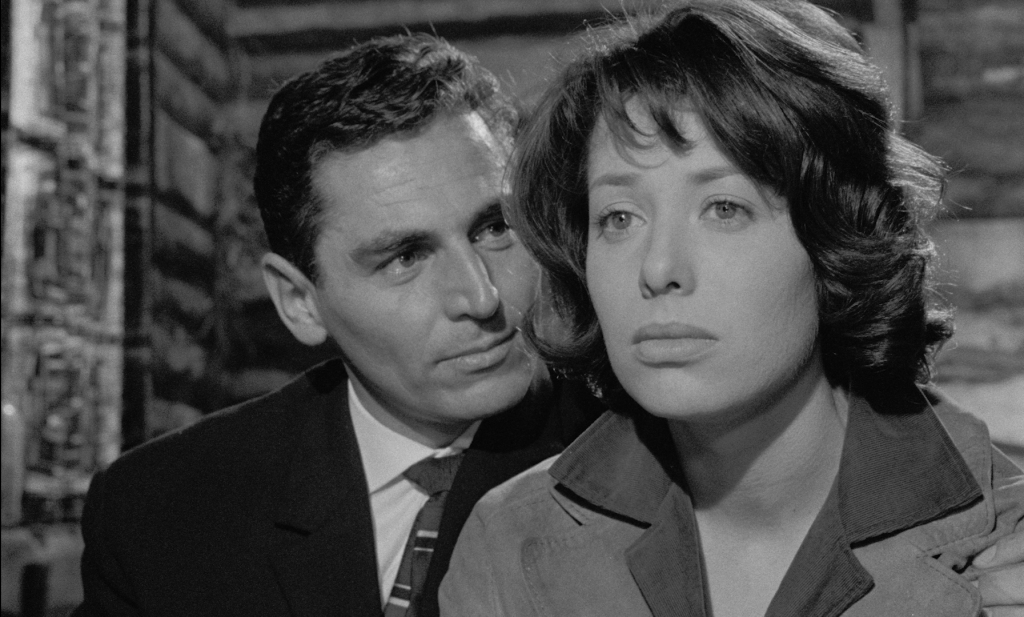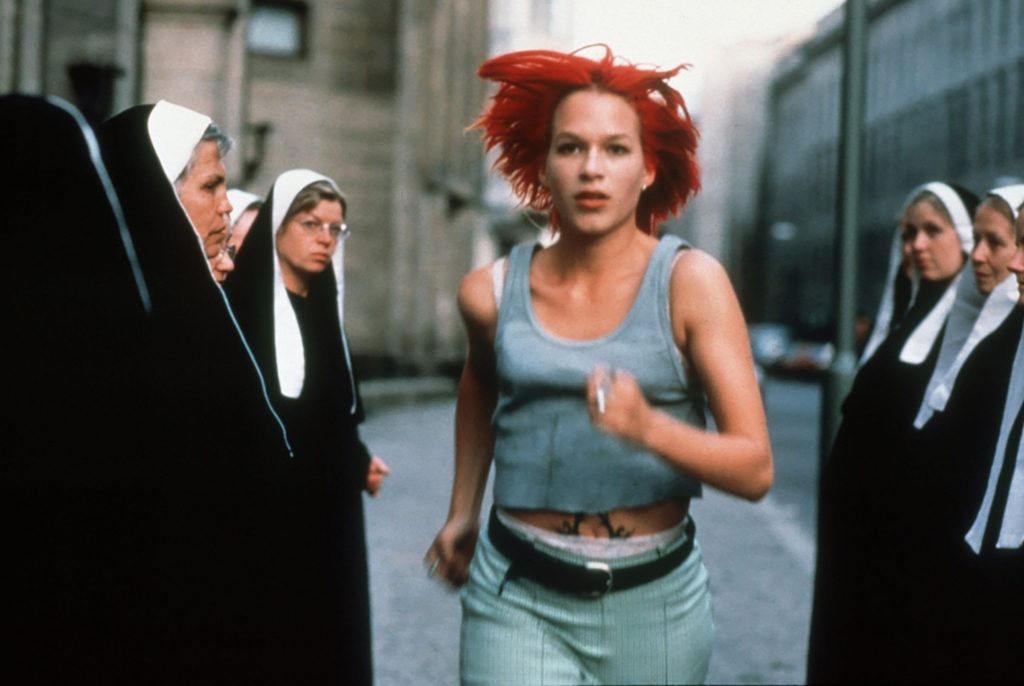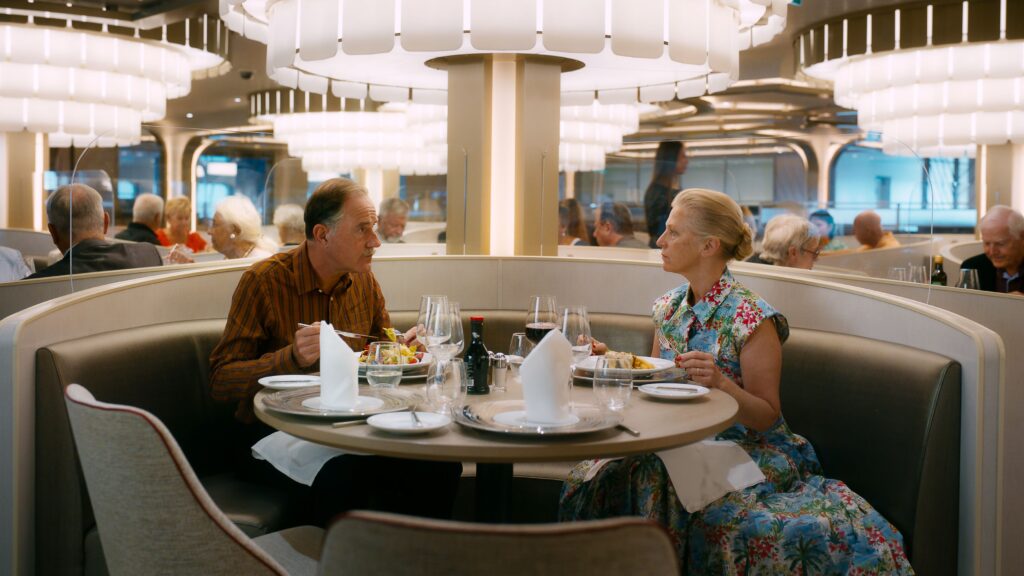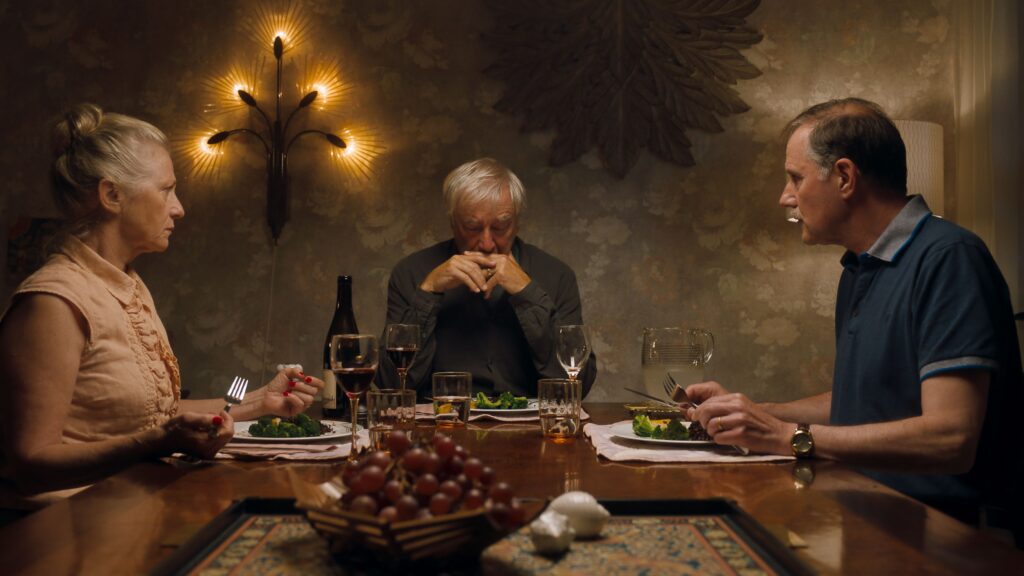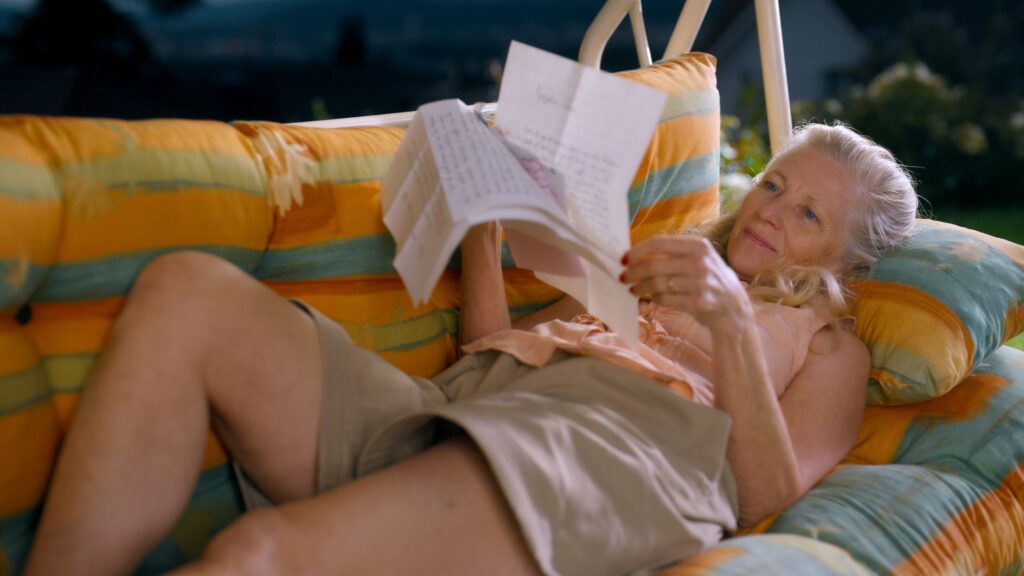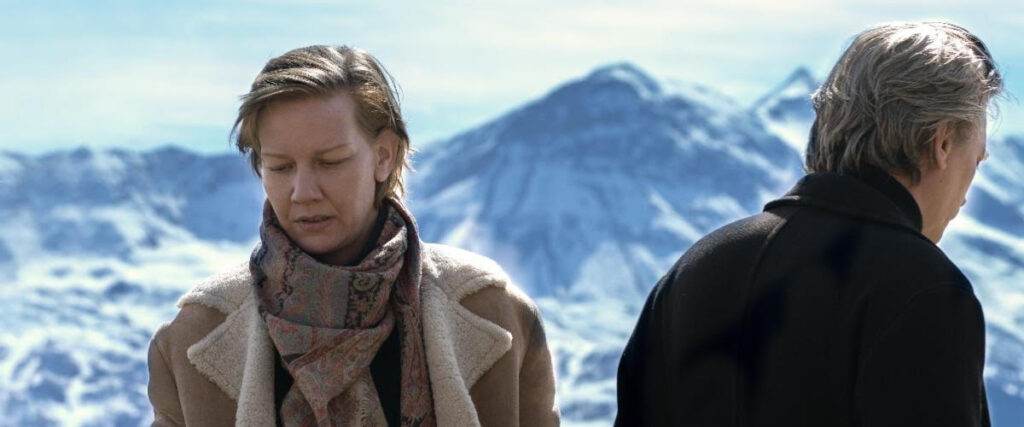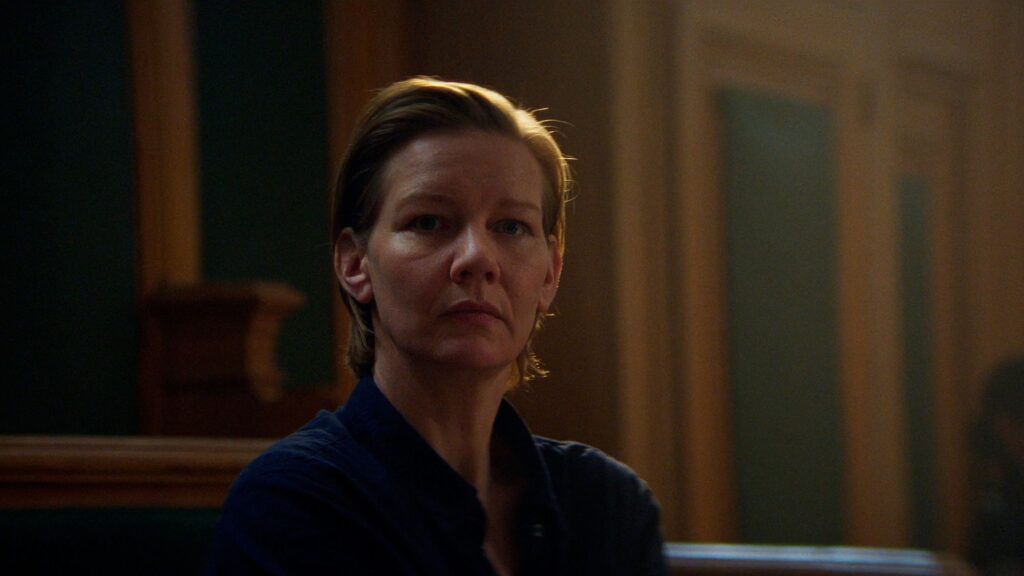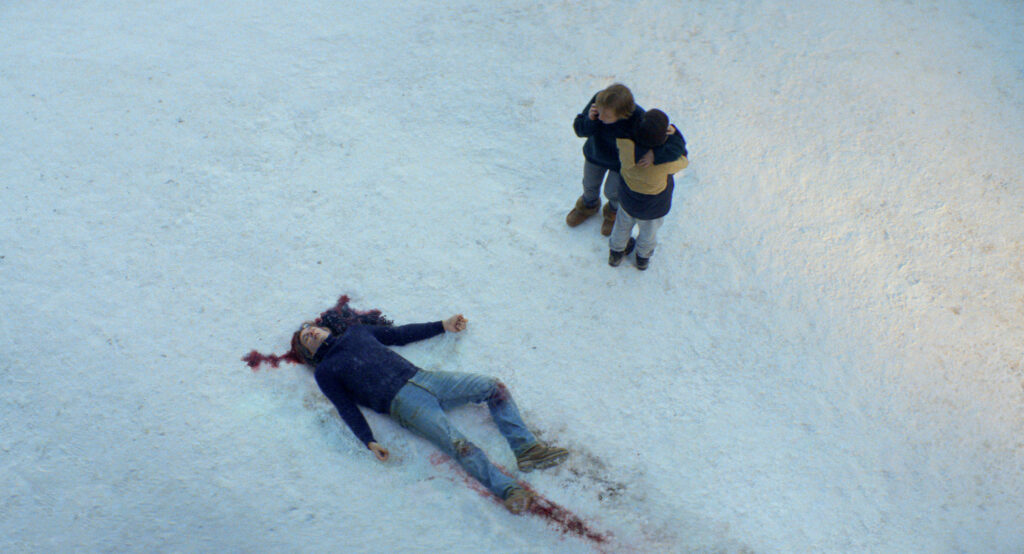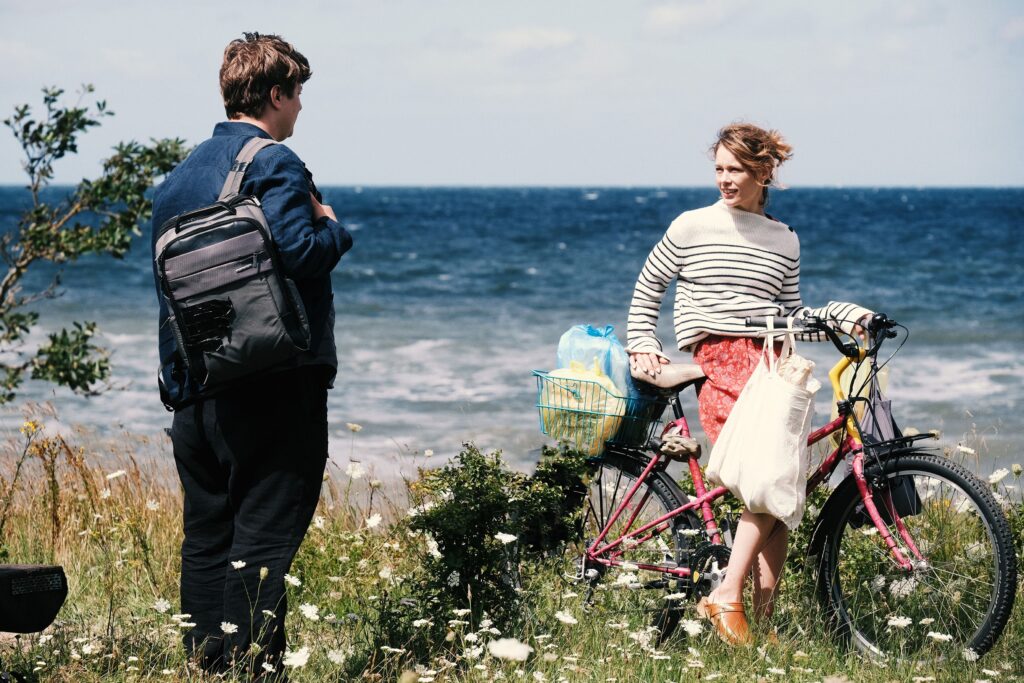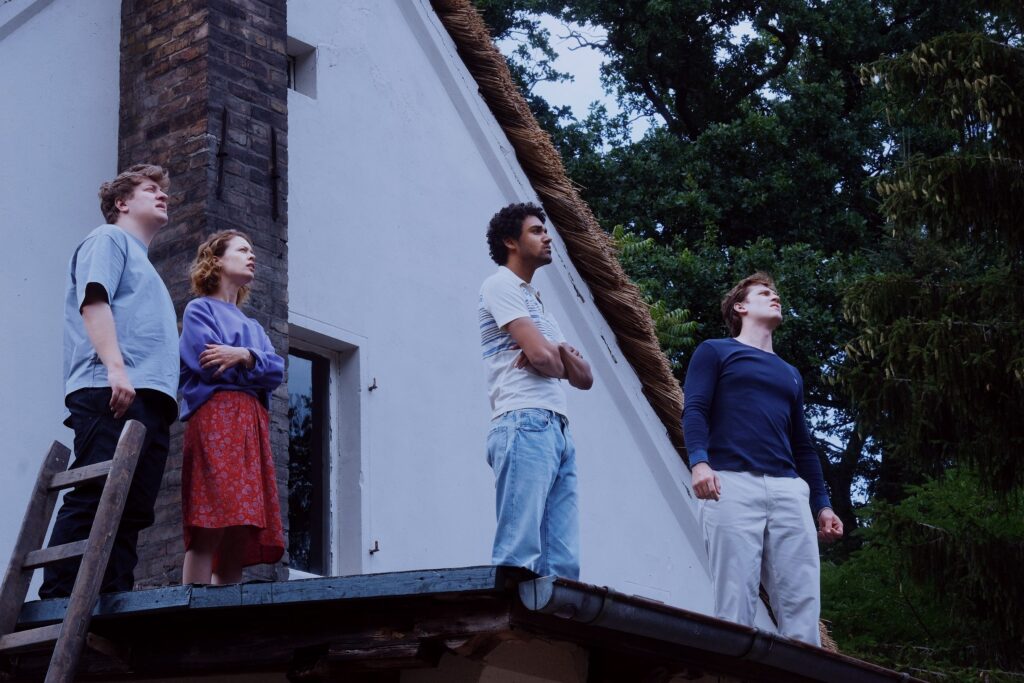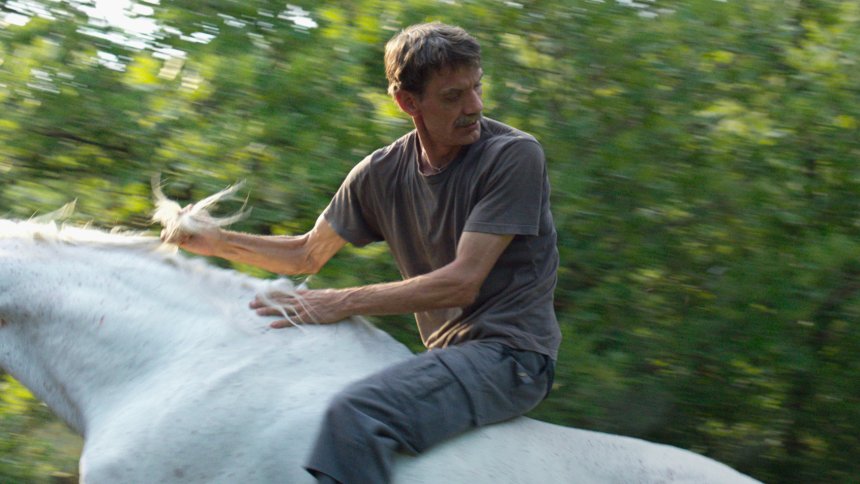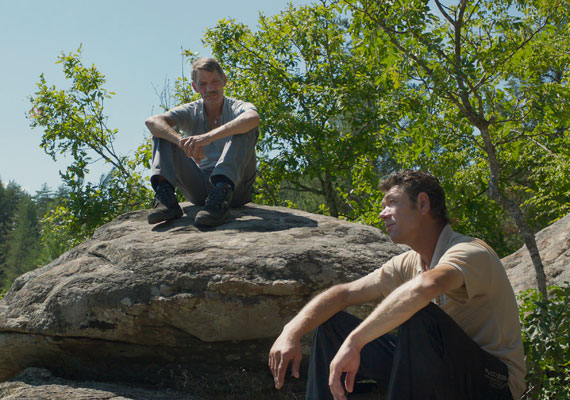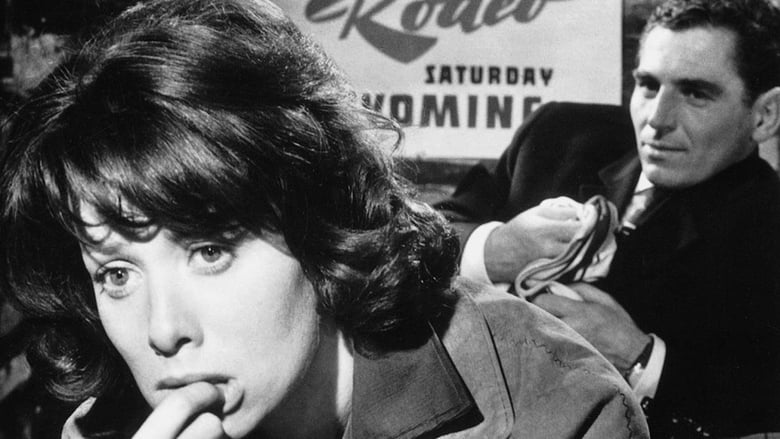
On December 14, Turner Classic Movies airs the super hard-to-find German neo-noir romance Black Gravel. It’s not streaming, so this is your best chance.
In the German film noir Black Gravel (Schwarzer Kies), Inge, the beautiful German wife of an American military base commander, runs into the shady hustler Robert, her former lover. He is one cynical dude and an asshole, but he doesn’t pretend to be anything else. Their reunion is bad for her, bad for him and bad for everyone.
The most common situation in film noir is a guy who falls for a dame (or a dame who falls for a guy) to his ruin. The sap is infatuated and thinks he’s in love. Here we have two characters and the question is whether they are really in love. Robert insists that he doesn’t love ANYONE, even as he is trying to rekindle the romance with Inge. Inge insists that it’s over. But is it over – for either of them? That’s what – in the end – Black Gravel is really all about – noir romance
In the last twenty minutes, the circumstances swivel. Rarely has a movie plot swung as rapidly between They’re gonna get caught – No, they’re gonna get away with it – No, They’re gonna get caught – No, they’re gonna get away with it – No, They’re gonna get caught – No, they’re gonna get away with it – No, They’re gonna get caught.
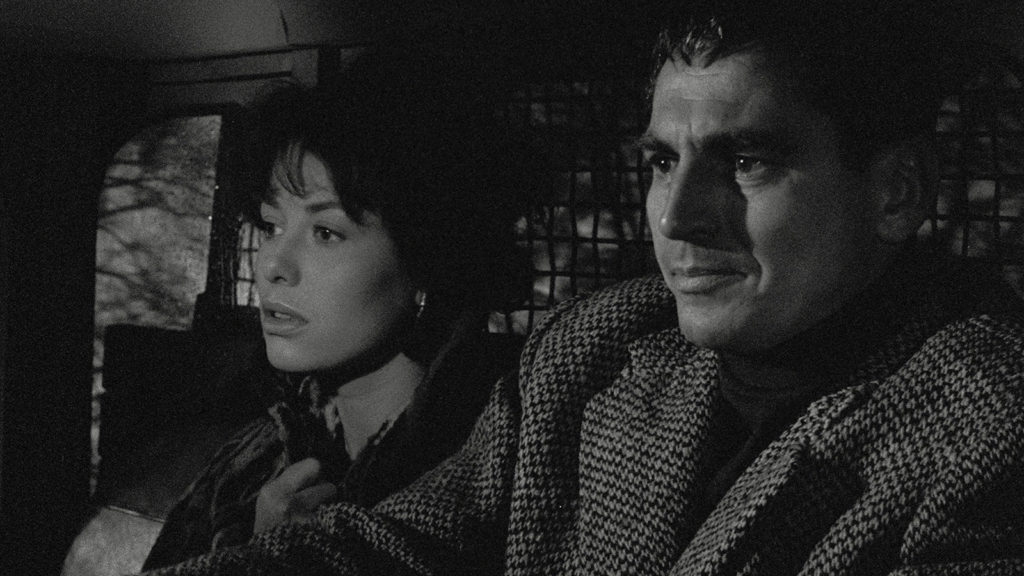
Robert is played by Helmut Wildt, a German actor I hadn’t seen before. He is charismatic and confident, with a breezy swagger that reminds me of Ben Gazzara. The deeply conflicted Inge is played ably by Ingmar Zeisberg.
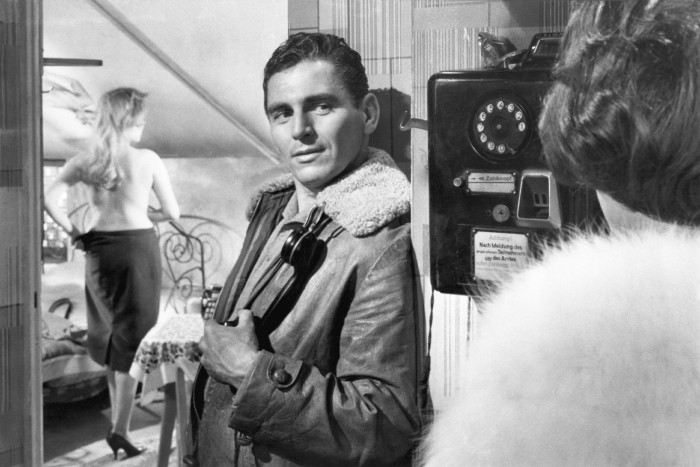
Black Gravel is set in a tiny German town corrupted by the presence of an US Air Force base, It’s the Phenix City of Germany, a sordid, trashy place. The character of Elli (Anita Höfer) is LITERALLY a slut.
Black Gravel is filled with tart observations of I Like Ike America, with its bland, conventional uniformity. The Germans are an amoral lot, reduced to leeching off the Americans. The Americans are clueless marks.
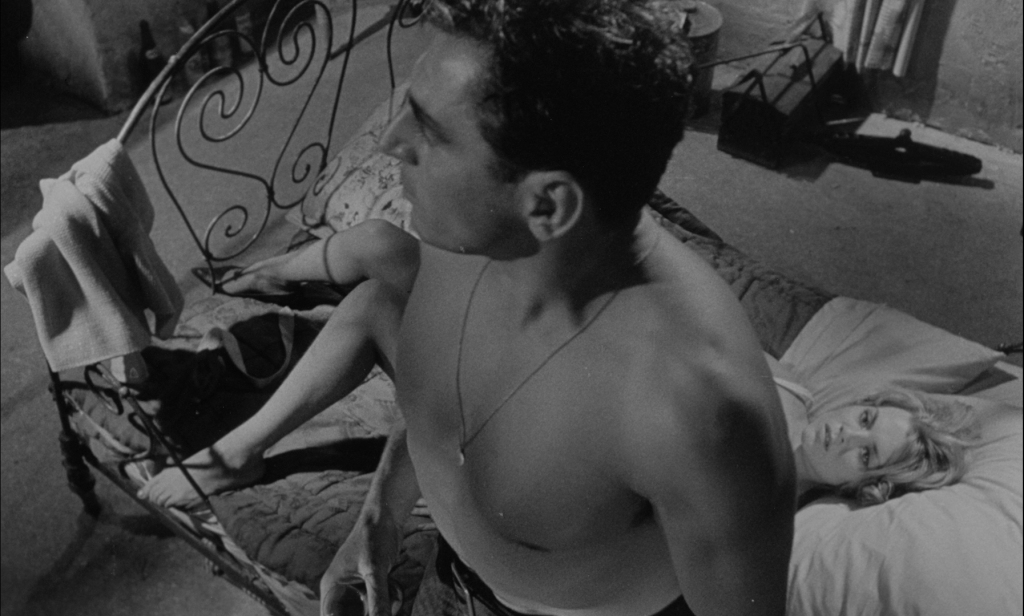
Note: A dog dies in the first minute of the film. I recommend that you don’t let this put you off this superb film; but, there it is, you’ve been warned.
The current version restores some bits that were cut from the film in 1961, supposedly as offensive to Jews. Those were probably the anti-semitic slurs uttered by unsympathetic characters; these slurs were not intended to debase Jews, but to illustrate the post-war continuation of antisemitism among Germans. (There’s some German racism in here, too). These are actually ANTI-antisemitic moments in the movie that were misunderstood at the time.
Unfortunately, it’s not streamable, but screenings can be booked from Kino Lorber, and it’s available for purchase in Blu-ray and DVD. I saw it at the 2020 Noir City.
Black Gravel was written and directed by Helmut Käutner. We don’t recognize this until late in the movie, but it turns out there’s no better noir romance than Black Gravel.
